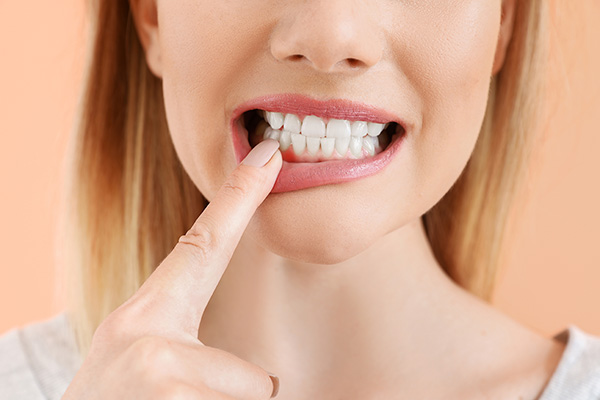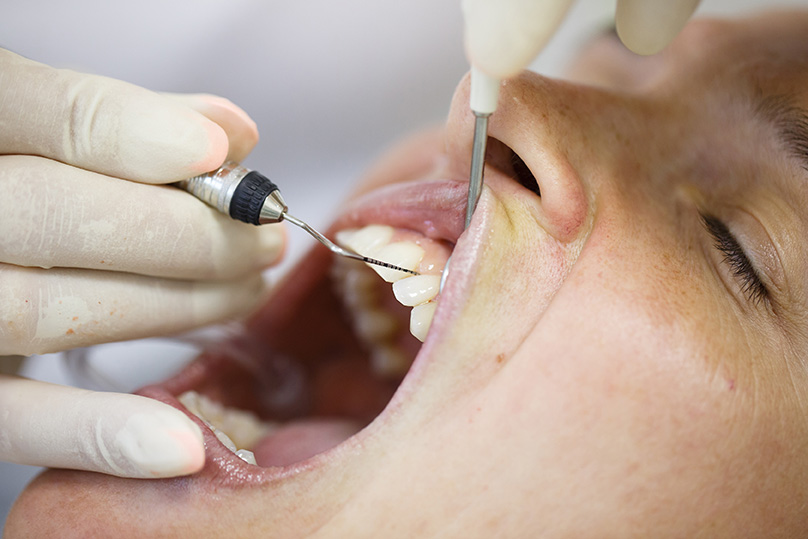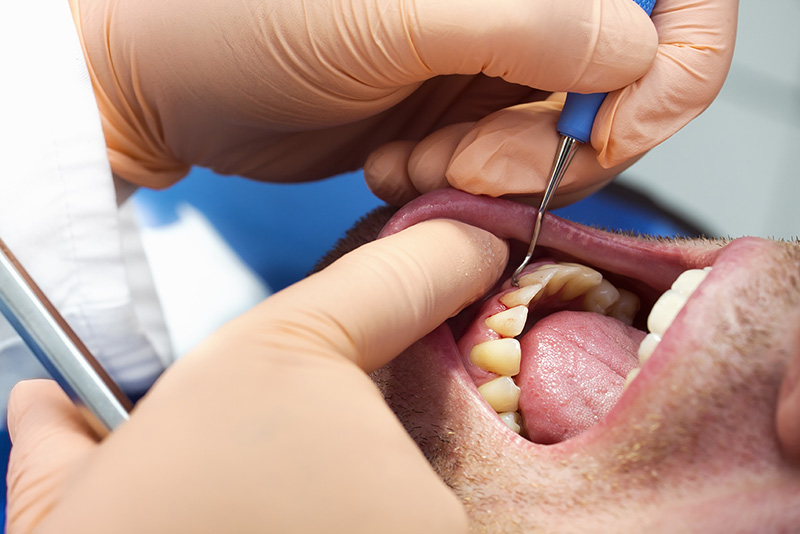Periodontal disease

Periodontal disease is a common dental problem, affecting most people at some point in their lives. It affects the gums, teeth, bone, and tissues supporting the teeth. About 10% of those affected by periodontal disease suffer from a severe form of the disease, which may cause loss of the supporting bone structure and increase the risk of losing the teeth.
The loss of the bone structure and the teeth usually result from bacteria that accumulate on the teeth.
Why do people suffer from periodontal disease?
Most people are at a high risk of developing gum disease. The increased risk of developing gum disease mostly depends on family history, smoking and stress. To reduce the risk of periodontal disease, you need to quit smoking. Other health conditions like diabetes make people more susceptible to periodontal disease.

How can I tell I have periodontal disease?
Periodontal diseases present different symptoms in people, but in most cases, it causes gum bleeding when brushing the teeth. In advanced stages of the disease, teeth drifting or movement occurs.
Most people do not know the symptoms of periodontal disease, which makes it difficult to get treatment on time. This makes regular dental check-ups necessary to enable your dentist to identify periodontal disease symptoms before the condition worsens.

What will I do if I have periodontal disease?
If you think you’ve developed periodontal disease, you need to see a dentist for proper diagnosis and get the right treatment. Your dentist will suggest a suitable treatment based on your condition, which may include a specific oral hygiene routine to prevent the accumulation of bacteria around your teeth.
You may also need to undergo teeth cleaning procedure by a dental hygienist. In some cases, a dentist may suggest a more complicated treatment for periodontal disease.
How do I find a periodontist?
If you need to see a periodontist, you can ask your dentist for a referral or search for one using the General Dental Council website.
What will a periodontist do?
The periodontist will perform a thorough dental exam and check if your bite aligns properly. You need to practice good oral hygiene to prevent plaque from accumulating on your teeth and the disease from becoming worse. Your periodontist will also advise you on the right teeth cleaning technique to adopt.
The in-office treatment may include root planing to clean your gum pockets and remove bacteria around your teeth. Your periodontist may administer a local anaesthetic for this because some patients find root planing uncomfortable.
If your gum pockets are deep or the root planing treatment fails, you may need to undergo surgery to treat the periodontal disease.


How do I access adequate treatment?
At Tunbridge Wells Dental Care, we have a periodontist who can treat and help you prevent all forms of gum disease. Our periodontists provide lasting solutions for gum recession, bad breath (halitosis), tooth mobility, soft tissue anomalies, and bleeding gums. We would also provide you with a standard and personalised treatment plan.
Feel free to contact us today on 01892 538078 or [email protected] to schedule an appointment with our dentist for your dental examination to check if you have periodontal disease.
